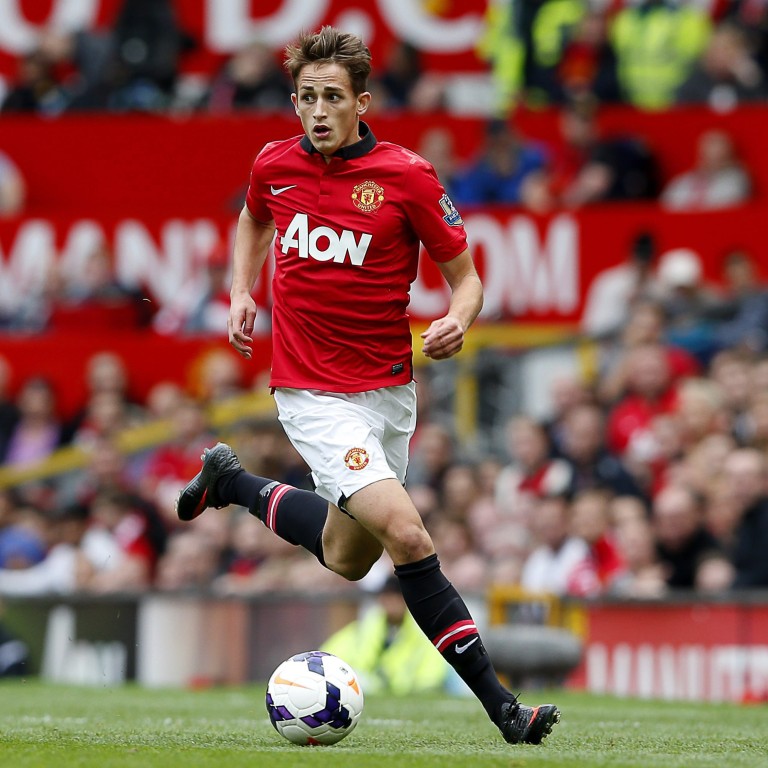
Hong Kong must follow best practice in other countries
Whether it's player development or officiating, successful blueprints elsewhere point the way
Adnan Januzaj, Manchester United's 19-year-old winger, has chosen Belgium as his home nation to pursue his international soccer career. At one stage, the Brussels-born Balkan, who this season emerged from "promising prospect" to "genuine talent", could have represented Albania, Croatia, England, Kosovo, Serbia, or Turkey.
But Belgium appears to offer the best platform for young players because it is now bearing the fruits of a successfully implemented national blueprint that was launched in 2001.
This 10-year development plan started after Belgium crashed and burned at the 2000 European Championships, a tournament they co-hosted. Michel Sablon, the national technical director of the Belgian FA set up a plan to help clubs manage player development. Now, Belgium have emerged a genuinely talented, exciting and competitive force in world soccer, ranked 12th in the world.
Belgium appears to offer the best platform for young players because it is now bearing the fruits of a successfully implemented national blueprint that was launched in 2001
It is now ridiculously easy to "name five famous Belgians". Their World Cup squad includes a dozen players who play regularly in the English Premier League, such as Vincent Kompany, Eden Hazard, Romelu Lukaku, Kevin Mirallas, Thomas Vermaelen and Marouane Fellaini.
This has also caught the attention of the Hong Kong Football Association, whose chief executive, Mark Sutcliffe wants to implement a similar blueprint here.
Sutcliffe says Hong Kong's blueprint for change should include: establishing a national curriculum and playing style and adopting it at all levels, from youth up to the professional clubs; persuading youth coaches to move away from a "win at all costs" mentality; introducing a small-sided games approach at the grass roots; and adopting an elitist approach at youth level with effective talent identification systems and playing the best against the best.
Belgium successfully implemented these changes and the HKFA believes Hong Kong, with a population of seven million and a huge interest in soccer, can achieve comparable goals to Belgium, with a population of 11 million.
Aside from the challenges in obtaining adequate funding and resources, a huge barrier to change is "that you have to win hearts and minds before you can win football matches" as Sutcliffe puts it.
"We are facing the same resistance here that they initially suffered in Belgium," he said. "We recently tried to introduce a minor change to the substitutions allowed in our youth leagues and there was nearly a mutiny."
This is a universal problem whereby the closed-minded, conservative and stubborn significantly impede progress. What a shame they have never heard of Albert Einstein's definition of insanity, which is doing something over and over and expecting different results.
If Hong Kong soccer is to move forward, these "insane" traditionalists need to be culled. Sutcliffe and others who are willing to try new methods should be encouraged and supported because Belgium has shown that it can be done.

There is no guarantee of similar stellar success, but this should not stop Hong Kong from trying. There is nothing wrong in laying down solid foundations, which are only part of the whole equation. Everyone understands that luck - extremely good luck - in possessing an exceptional player or group of players is needed too.
And what about referees? Interestingly, Belgium's development of top referees is not on a par with its development of players. There is no elite referee representing Belgium at this year's World Cup. There are other models in other countries that are more appropriate to helping Hong Kong lay down a blueprint for developing match officials - and England isn't one of them. The so-so standard and inconsistency of officiating in the EPL does not appear commensurate with the fact that the referees there are full-time professionals.
Rational Ref prefers to look a bit closer to home and observe how Australia's Ben Williams and Japan's Yuichi Nishimura will be officiating at the World Cup. Australia's development blueprint for referees is among the best and the AFC has recognised Williams as its Referee of the Year.
Australia's female match officials are winning accolades for their top performances, with Allyson Flynn the Women's Assistant Referee of the Year. Flynn is the first woman to officiate in an AFC senior men's tournament.
There is no reason why Hong Kong cannot duplicate Belgium's development of top players and Australia's development of top match officials.

